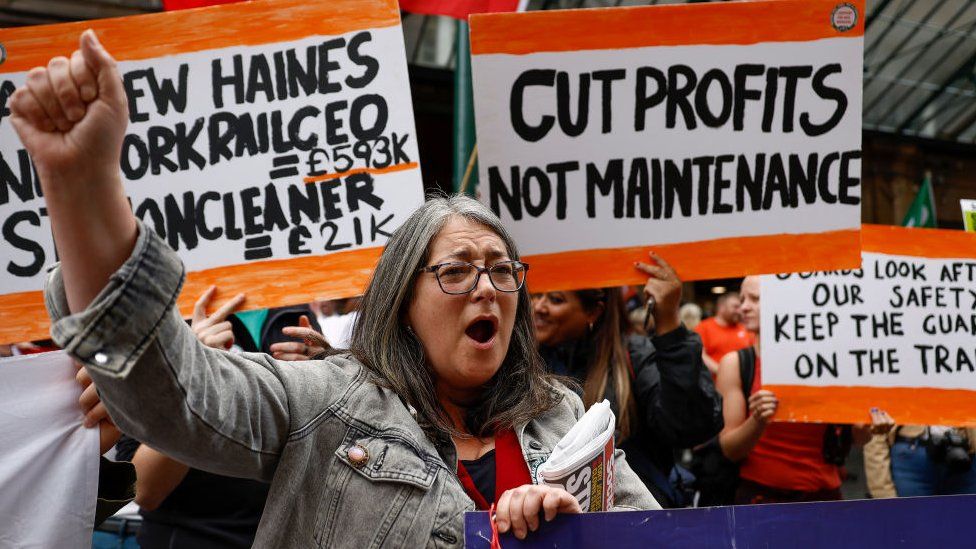ARTICLE AD BOX
 Image source, Getty Images
Image source, Getty Images
Rail workers are among those set to strike in the coming weeks
By Becky Morton
BBC political reporter
Prime Minister Rishi Sunak has said he is working on "new tough laws" to protect people from strike disruption.
He told MPs if "union leaders continue to be unreasonable, then it is my duty to take action to protect the lives and livelihoods of the British public".
But Labour leader Sir Keir Starmer pointed to comments from the transport secretary suggesting new laws would not help with current industrial action.
Nurses, paramedics and rail staff are among those set to strike this winter.
A bill has been introduced to Parliament which would ensure minimum service levels on transport networks during strikes but it is yet to be debated by MPs and peers.
Earlier, Transport Secretary Mark Harper told MPs the new legislation "may well improve the service passengers receive on strike days" in the future but it would not "help with the industrial action that we face today".
He added that his "priority" was to resolve the industrial dispute with rail unions "so that passengers don't have strike days".
Downing Street would not give details of any new plans to tackle strikes but said work on new measures was "ongoing".
The prime minister's official spokesman said: "We keep the powers under review and obviously in light of what we are seeing with effectively rolling strikes, the prime minister thinks it is right to push ahead with new powers."
During Prime Minister's Questions, Mr Sunak called on Sir Keir to "stand up for working people" and support the minimum service levels legislation.
He accused Labour Party of refusing to back workers and businesses who would be affected by the strikes.
But Sir Keir said the prime minister "should stop grandstanding, stop sitting on his hands, get round the table and resolve these issues".
Unions are calling for pay rises to keep up with the cost of living.
Inflation - the rate at which prices rise - is currently running at 11.1%, the highest level for 40 years.
But the government says increasing pay with inflation is unaffordable in the current economic climate.
Mr Sunak insisted the government had been "reasonable" and had accepted the recommendations of independent pay review bodies for public sector workers.
The long-running dispute with rail unions is also about job cuts and changes to terms and conditions.
It has already caused many days of disruption this year, bringing much of the network to a standstill on strike days, with more walkouts planned over Christmas.
Meanwhile, ambulance staff across most of England and Wales are also going on strike on 21 December in a dispute over pay, while nurses in England, Wales and Northern Ireland will walk out for two days in December.

 1 year ago
26
1 year ago
26








 English (US)
English (US)